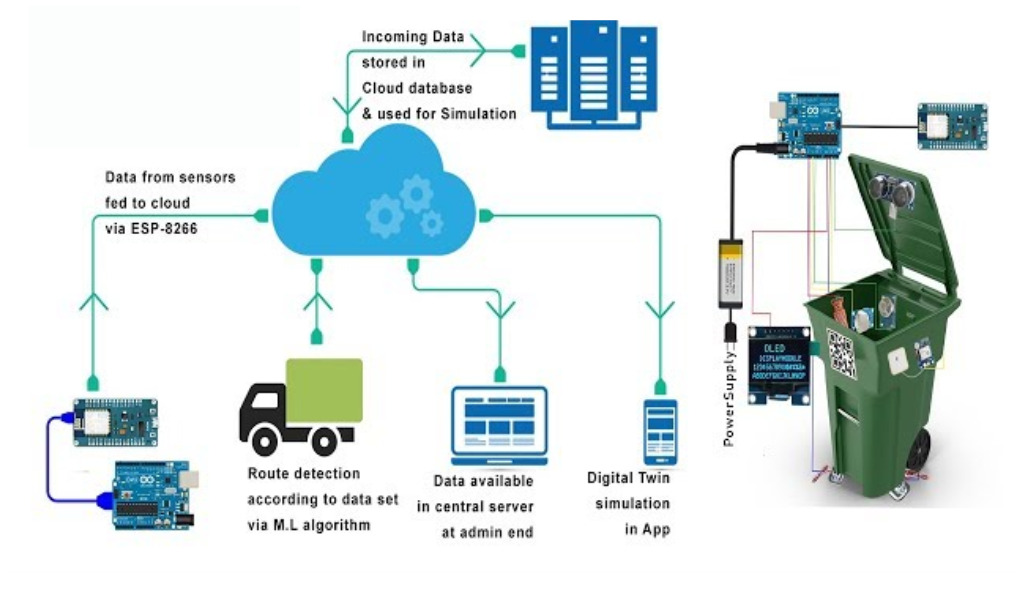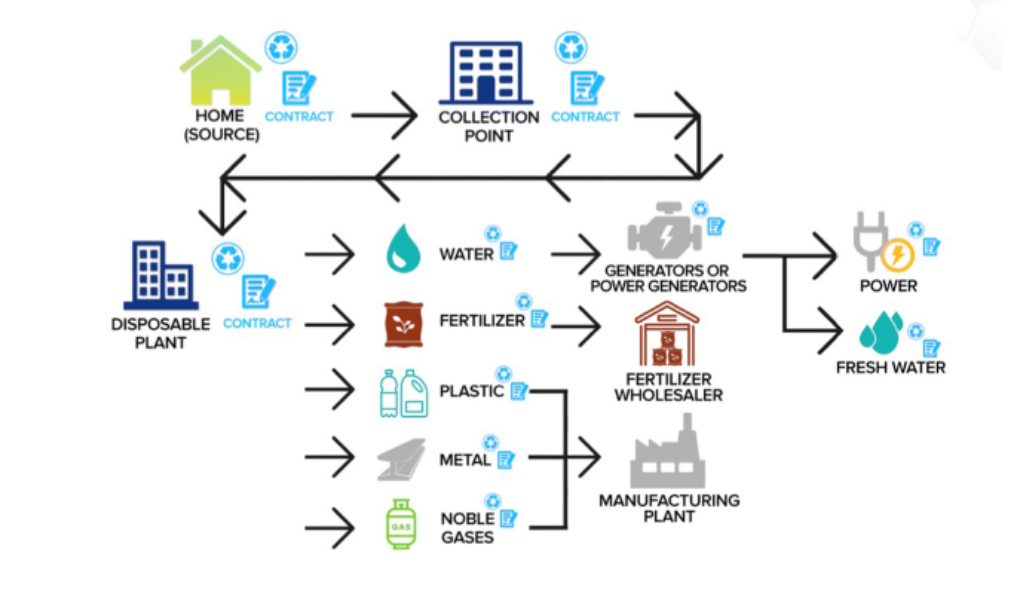From Trash to Treasure: Tech-Driven Waste Reduction Breakthroughs
The 21st century has been marked by exponential technological growth. Unfortunately, while many of these advancements have led to enhanced convenience and connectivity, they’ve also been accompanied by a rise in waste generation. However, the very technology that is often criticized is now being harnessed to lead an eco-revolution. As waste-related concerns intensify, innovators worldwide are deploying tech solutions to shift our trajectory from environmental degradation to rejuvenation.
In this digital era, trash is no longer just discarded material; it’s data waiting to be analyzed, a resource to be tapped into. From Artificial Intelligence (AI) to biotechnologies, a myriad of tools is being employed to transform how we manage, reduce, and even repurpose waste. The journey from trash to treasure, once a mere idiom, is now a tangible, tech-driven process.
IoT and Smart Waste Management: Making Trash Talk
IoT, or the Internet of Things, is reshaping the way we handle waste. At the heart of this transformation are connected devices that provide real-time insights into waste production and management. These devices, like sensors integrated into trash bins, are revolutionizing waste collection and processing.
For example, in many urban environments, waste collection vehicles are frequently dispatched, often collecting from half-empty bins, leading to fuel waste and increased carbon emissions. With sensors alerting municipalities when bins are full, pickups can be better scheduled, ensuring efficiency and reduced environmental impact. This approach not only curtails operational costs but also minimizes the carbon footprint of waste collection operations.

AI-Driven Recycling: Sorting Made Smart
The recycling industry has historically been plagued by inefficiencies, particularly in the sorting phase. However, the introduction of AI is transforming this. Advanced machine learning algorithms combined with high-resolution cameras can now swiftly identify and sort different materials, outpacing human capabilities.
Furthermore, AI’s predictive analytics capabilities offer another layer of optimization. By analyzing patterns in waste generation, AI systems can predict future waste influxes. This means recycling plants can better allocate resources, ensuring smooth operations even during peak waste generation periods. With the integration of AI, recycling becomes not just environmentally beneficial but also economically viable.
Biotech Solutions: Turning Waste to Wealth
Biotechnology is unlocking novel methods of waste utilization, turning trash into valuable commodities. For instance, certain strains of bacteria are being genetically engineered to consume plastics, breaking them down into harmless compounds. This promises a solution to the non-biodegradable plastic menace that chokes our oceans and landfills.
Another groundbreaking biotech solution is the creation of edible packaging. Derived from natural substances like seaweed, these packaging materials can be consumed along with the product they enclose, eliminating waste generation at the source. With these innovations, biotechnology is not just reducing waste but actively contributing to a circular economy.
Circular Economy Apps: Bridging Consumers and Recyclers
As consumers become more eco-conscious, the demand for platforms to facilitate sustainable practices has risen. Enter circular economy apps, digital platforms that seamlessly connect consumers with recyclers, upcyclers, and even other users looking to reuse items.
These platforms allow users to donate, sell, or purchase second-hand items, extending the lifespan of products and reducing the demand for new ones. Additionally, by offering a marketplace for upcycled items, these apps champion creativity and sustainability in tandem, encouraging a culture of reusing and repurposing, thereby decreasing the strain on our planet’s resources.
3D Printing from Recycled Materials
3D printing, once a niche technology, is now at the forefront of sustainable manufacturing. Instead of sourcing virgin materials, many industries are focusing on 3D printers that use recycled plastic or metals. This shift doesn’t just reduce waste; it paves the way for localized manufacturing, slashing transportation emissions.
In a world seeking sustainable solutions, 3D printing from recycled materials is a game-changer. It promotes the idea that waste can be a resource, and with the right technology, can be transformed into functional, valuable products, embodying the “trash to treasure” philosophy.
Blockchain in Waste Management
The value of blockchain transcends cryptocurrencies. In waste management, it offers a level of transparency previously unseen. By recording every step of the waste journey, from collection to processing, blockchain ensures that every stakeholder in the recycling chain is accountable.
Such transparency encourages responsible behavior from companies and fosters trust among consumers. When people can see the journey of their waste, they’re more likely to engage in sustainable practices, knowing their efforts are genuinely making a difference. Blockchain, in essence, is building a trust-based foundation for a waste-free future.

Zero-Waste Stores and Digital Platforms
In a bid to combat the excessive waste generated from packaging, zero-waste stores are emerging globally. These outlets allow customers to bring their containers, eliminating the need for disposable packaging. The digital counterpart of these physical stores is the rise of online marketplaces that promote eco-friendly, minimal packaging products.
By eliminating the intermediary packaging, these platforms significantly reduce waste generation. The success of such stores and platforms indicates a shifting consumer mindset, one that prioritizes sustainability over convenience, signaling a hopeful trend for the environment.
EdTech: Educating the Next Generation on Waste Reduction
Education is a powerful tool in shaping future generations, and EdTech is ensuring that the lessons of sustainability are well-integrated into modern curricula. Interactive applications, virtual reality simulations, and gamified experiences are making learning about waste management engaging and memorable for students.
By immersing students in virtual ecosystems, they can witness firsthand the impact of waste on the environment, fostering a sense of responsibility. Such experiences are instrumental in nurturing eco-conscious citizens who will champion sustainability in their adult lives.
Conclusion: An Eco-Friendly Tech Future Awaits
Technology, often criticized for its environmental footprint, is proving to be a double-edged sword. While certain aspects of tech have exacerbated environmental challenges, its innovative applications are steering us towards a sustainable future. The collaborative efforts of tech giants, startups, and consumers have ushered in a new era where waste is viewed not as a problem, but as a resource.
The solutions highlighted in this discourse are just the tip of the iceberg. As technology continues to evolve and integrate with environmental goals, a world where waste is a thing of the past seems not just possible, but imminent.
FAQs
The Internet of Things (IoT) is bringing a new dimension to waste management. By embedding sensors in trash bins and other waste management tools, real-time data about waste levels, types, and locations can be gathered. This facilitates better decision-making. For instance, municipalities can adjust waste collection schedules based on actual need rather than estimates, leading to fuel savings and reduced emissions. Moreover, IoT devices can be integrated into broader city management systems, streamlining urban operations and ensuring that waste management aligns seamlessly with other municipal services.
Indeed, AI is proving to be transformative for the recycling industry. Traditional recycling processes often suffer from inefficiencies, particularly in sorting. The manual separation of recyclables from non-recyclables is labor-intensive and prone to errors. However, with AI-driven technologies, this process becomes automated, rapid, and significantly more accurate.
Biotechnology offers a fascinating intersection of biology and technology, and it’s making monumental strides in waste reduction. One of the most notable achievements is the development of engineered microbes capable of breaking down stubborn pollutants or non-biodegradable materials. For instance, certain bacteria have been modified to consume plastics, converting them into benign or even useful substances, offering a potential solution to the plastic pollution crisis.
Zero-waste shops, with their focus on reducing packaging and promoting sustainable consumption, are indeed making a positive environmental impact. These stores allow consumers to purchase products in bulk, using their containers, thereby eliminating the need for single-use packaging. This model drastically reduces the amount of plastic and other wastage entering our environment.
